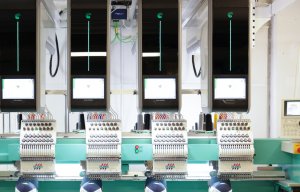
Coloreel closes new deal for ten units with MIB
Formax, a leading manufacturer of carbon fibre and speciality reinforcements, reports it has taken major steps to improve energy efficiency at the company's UK headquarters. The installation of 216 solar panels and the insulation of the production facility's roof are part of Formax’s on-going commitment to reduce energy consumption and create a more sustainable manufacturing environment.

5th November 2012
Innovation in Textiles
|
Leicester
Formax, a leading manufacturer of carbon fibre and speciality reinforcements, reports it has taken major steps to improve energy efficiency at the company's UK headquarters. The installation of 216 solar panels and the insulation of the production facility's roof are part of Formax’s on-going commitment to reduce energy consumption and create a more sustainable manufacturing environment.
The installation process took four weeks to complete without any major disruptions and the new system went live on the 18th September. Based on initial readings it is estimated the solar panels will generate around 40,000 kWh per year, equivalent to £12,000 of electricity.
Formax anticipates it will use around 75% of the electricity generated and the surplus 25% will be exported back to the national grid as part of the Government's 'Feed-In Tariff' scheme that generates solar energy for UK households and businesses.
"As a manufacturer, we are acutely aware of our energy consumption and welcome any measures that can be taken to improve our efficiencies. This is just the beginning and the process of monitoring our production methods and output is something we will continue to evaluate", commented Oliver Wessely, Managing Director of Formax.
In May this year Formax was awarded the distinguished DNV materials qualification for its entire range of carbon multiaxial fabrics. Det Norske Veritas (DNV) is one of the world’s leading certification bodies and offers some of the most sophisticated materials technology and testing services available.
With extensive expertise in laboratory testing, theoretical knowledge of materials, failure modes and mechanisms, a DNV accreditation is said to provide customers with a high level of confidence that approved materials will deliver outstanding strength and exceptional performance.
Earlier this year in March, the company announced it had formed a new research collaboration with the Polymer and Composite Engineering (PaCE) group based at Imperial College in London.
The project will focus on developing the technology of short and long fibre composites in the form of a novel binding chemistry. The findings will improve the processability of carbon preforms for RTM and infusion techniques, but most importantly enhance the mechanical performance of the finished carbon composite.

Business intelligence for the fibre, textiles and apparel industries: technologies, innovations, markets, investments, trade policy, sourcing, strategy...
Find out more